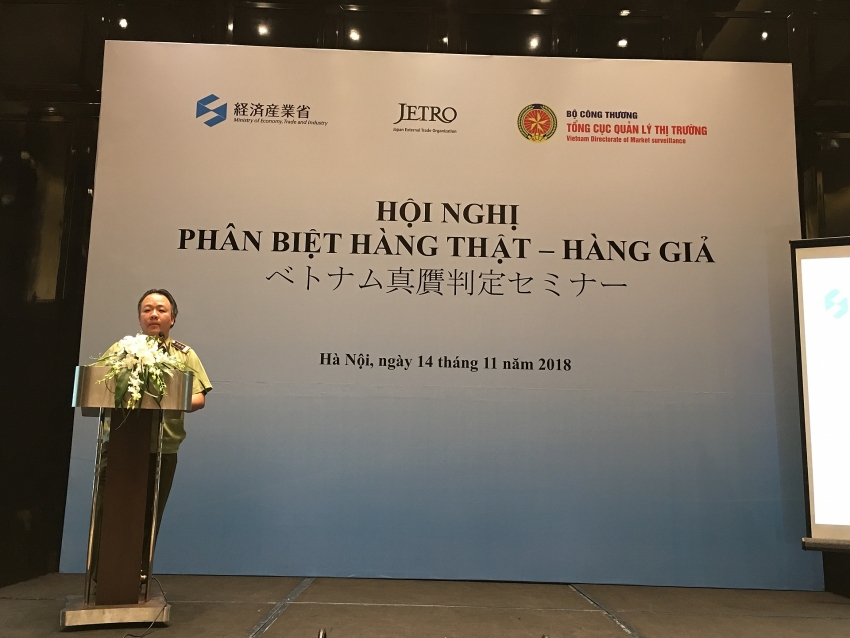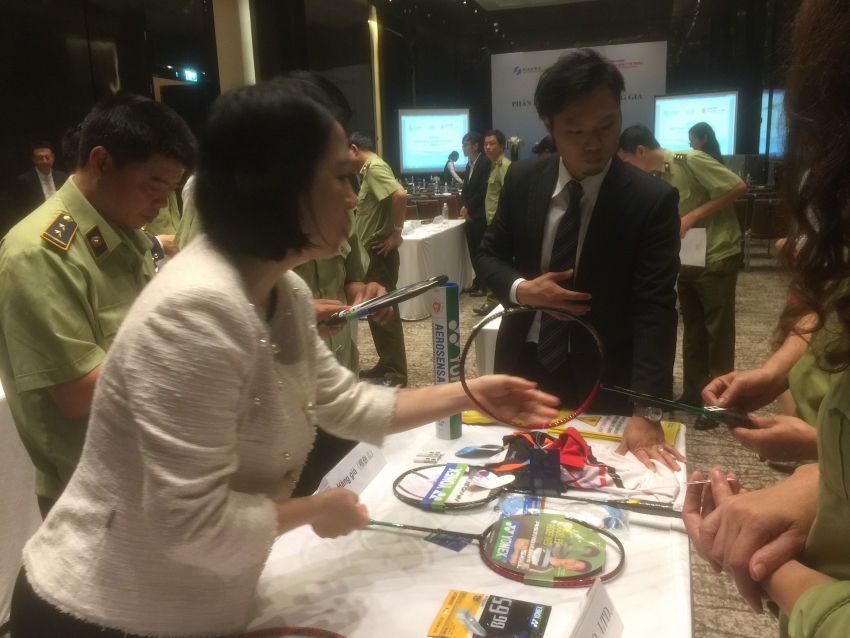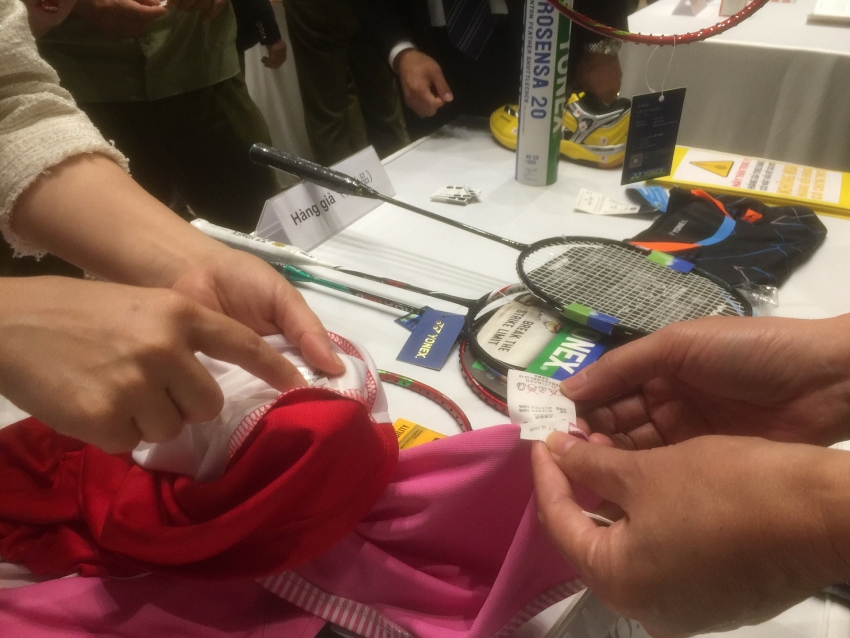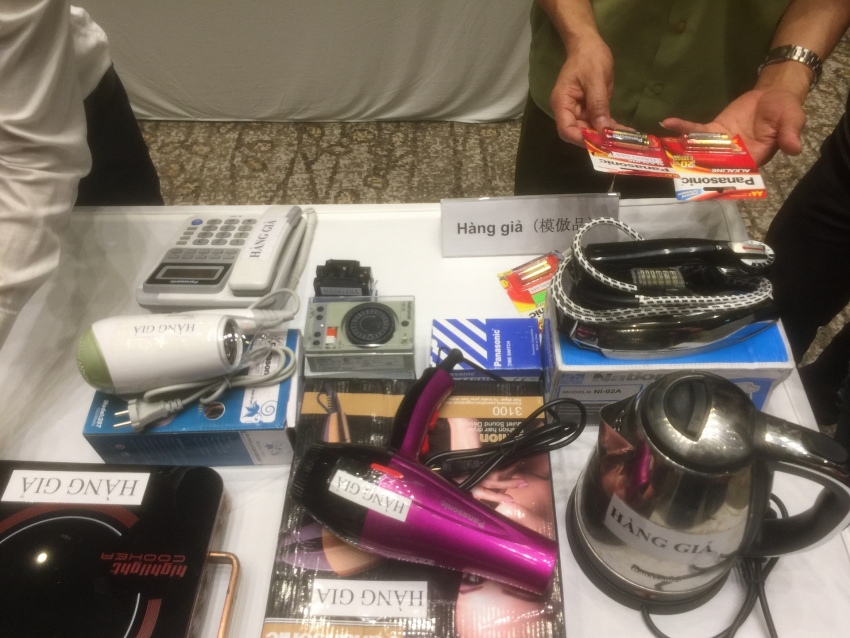Counterfeit goods growing into serious social issue
 |
| Counterfeit goods – a serious problem |
Over the past years, the manufacturing and sales of counterfeit goods and other forms of intellectual property infringement have been on the rise, with increasingly sophisticated methods to avoid detection by customers and authorities alike. Annually, the Vietnam Directorate of Market Surveillance inspects, handles, and prevents tens of thousands of trade fraud and origin and intellectual property violations.
In the first six months of 2018, Vietnamese agencies detected, arrested, and handled 88,229 cases of violations, issuing fines of more than VND7.427 trillion ($322.9 million). This included more than 5,000 cases of counterfeit and intellectual property infringements, up 117 per cent over the same period in 2017.
Although the Vietnam Directorate of Market Surveillance endeavoured to co-ordinate with local authorities as well as domestic and foreign enterprises to prevent fake goods from entering the market, but fell far short of the target, and especially the expectations of consumers and genuine manufacturers at home and abroad.
Therefore, the workshop on “How to distinguish counterfeit goods” held by the Japanese Ministry of Economy, Trade and Industry (METI), Japan External Trade Organisation (JETRO), and the Vietnam Directorate of Market Surveillance on November 14 aims to disseminate more information and guide the functional forces of Vietnam to recognise and distinguish counterfeit goods.
At the workshop, the Vietnam Directorate of Market Surveillance also recommended that the 26 functional units of the northern border provinces where most counterfeit goods enter the Vietnamese territory need to be more stringent. Also, representatives from Japan shared at the workshop that counterfeit goods usually have different colour, lower quality, and cheaper price.
The Vietnamese market is awash with counterfeit products for a number of causes.
The first is the Vietnamese consumers and businesses are still not aware of their role in anti-counterfeit activities. According to a recent survey by the Vietnam Directorate of Market Surveillance, 80 per cent of consumers buy counterfeit goods because of the cheap price, even if they know the product is counterfeit. Similarly, retailers know the products are fake but do not report it to the authorities over concerns of a potential impact on their prestige.
The second is that co-ordination between anti-counterfeiting authorities in Vietnam is still not effective.
The third is that counterfeit production is becoming increasingly sophisticated and complicated, thus consumers and authorities are ever-more hard-pressed to identify fake products.
To deal with the problem, experts advised enterprises to actively co-ordinate with functional agencies by providing necessary information about violators, methods to distinguish, the types of fake goods, and the geographical areas that usually consume fake goods. Additionally, enterprises should describe the characteristics of real and counterfeit goods, as well as co-ordinate to communicate with the public to raise awareness so that people would be more willing to report violations.
Experience from other countries shows that the enterprises play a crucial role in the fight against counterfeit products. “Enterprises need to connect with consumers to help raise awareness and understanding of their products. At the same time, consumers should be vigilant when purchasing goods and must be aware of their duties in the fight against counterfeit goods. This is not just about protecting consumers’ benefits but also about curtailing destructive behaviour which hinders the development of the country's economy,” said Hironobu Kitagawa, chief representative of JETRO.
 |
 |
 |
What the stars mean:
★ Poor ★ ★ Promising ★★★ Good ★★★★ Very good ★★★★★ Exceptional
Related Contents
Latest News
More News
- Congratulations from VFF Central Committee's int’l partners to 14th National Party Congress (January 25, 2026 | 09:46)
- List of newly-elected members of 14th Political Bureau announced (January 23, 2026 | 16:27)
- 14th Party Central Committee unanimously elects To Lam as General Secretary (January 23, 2026 | 16:22)
- List of members of 14th Party Central Committee announced (January 23, 2026 | 09:12)
- Highlights of fourth working day of 14th National Party Congress (January 23, 2026 | 09:06)
- Press provides timely, accurate coverage of 14th National Party Congress (January 22, 2026 | 09:49)
- Press release on second working day of 14th National Party Congress (January 22, 2026 | 09:19)
- Minister sets out key directions to promote intrinsic strength of Vietnamese culture (January 22, 2026 | 09:16)
- 14th National Party Congress: Renewed momentum for OVs to contribute to homeland (January 21, 2026 | 09:49)
- Party Congress building momentum for a new era of national growth (January 20, 2026 | 15:00)

 Tag:
Tag:






















 Mobile Version
Mobile Version